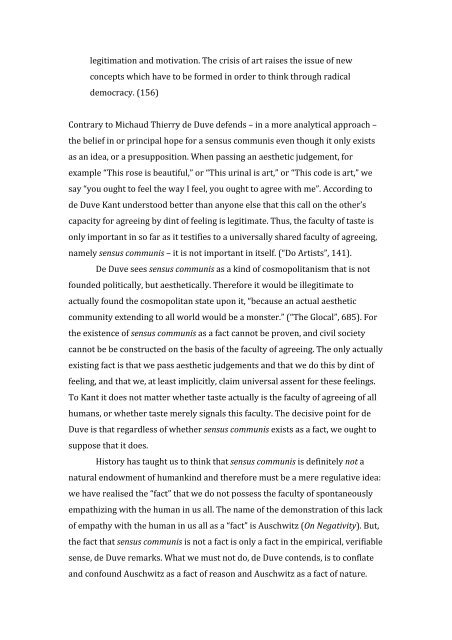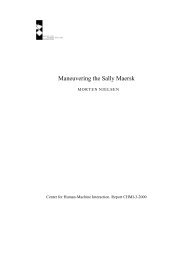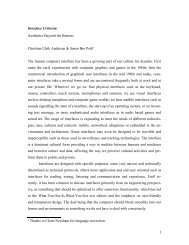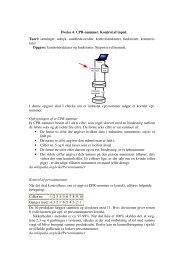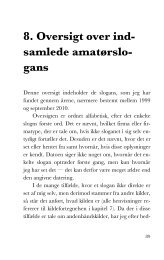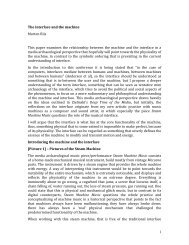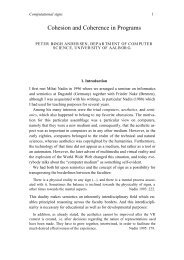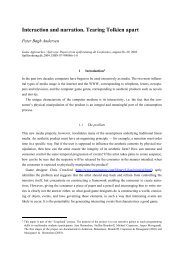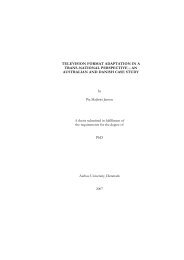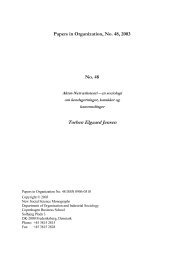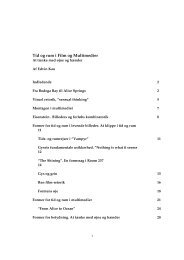SENSUS COMMUNIS AND THE PUBLIC Jacob Lund Drawing upon ...
SENSUS COMMUNIS AND THE PUBLIC Jacob Lund Drawing upon ...
SENSUS COMMUNIS AND THE PUBLIC Jacob Lund Drawing upon ...
You also want an ePaper? Increase the reach of your titles
YUMPU automatically turns print PDFs into web optimized ePapers that Google loves.
legitimation and motivation. The crisis of art raises the issue of new <br />
concepts which have to be formed in order to think through radical <br />
democracy. (156) <br />
Contrary to Michaud Thierry de Duve defends – in a more analytical approach – <br />
the belief in or principal hope for a sensus communis even though it only exists <br />
as an idea, or a presupposition. When passing an aesthetic judgement, for <br />
example “This rose is beautiful,” or “This urinal is art,” or “This code is art,” we <br />
say “you ought to feel the way I feel, you ought to agree with me”. According to <br />
de Duve Kant understood better than anyone else that this call on the other’s <br />
capacity for agreeing by dint of feeling is legitimate. Thus, the faculty of taste is <br />
only important in so far as it testifies to a universally shared faculty of agreeing, <br />
namely sensus communis – it is not important in itself. (“Do Artists”, 141). <br />
De Duve sees sensus communis as a kind of cosmopolitanism that is not <br />
founded politically, but aesthetically. Therefore it would be illegitimate to <br />
actually found the cosmopolitan state <strong>upon</strong> it, “because an actual aesthetic <br />
community extending to all world would be a monster.” (“The Glocal”, 685). For <br />
the existence of sensus communis as a fact cannot be proven, and civil society <br />
cannot be be constructed on the basis of the faculty of agreeing. The only actually <br />
existing fact is that we pass aesthetic judgements and that we do this by dint of <br />
feeling, and that we, at least implicitly, claim universal assent for these feelings. <br />
To Kant it does not matter whether taste actually is the faculty of agreeing of all <br />
humans, or whether taste merely signals this faculty. The decisive point for de <br />
Duve is that regardless of whether sensus communis exists as a fact, we ought to <br />
suppose that it does. <br />
History has taught us to think that sensus communis is definitely not a <br />
natural endowment of humankind and therefore must be a mere regulative idea: <br />
we have realised the “fact” that we do not possess the faculty of spontaneously <br />
empathizing with the human in us all. The name of the demonstration of this lack <br />
of empathy with the human in us all as a “fact” is Auschwitz (On Negativity). But, <br />
the fact that sensus communis is not a fact is only a fact in the empirical, verifiable <br />
sense, de Duve remarks. What we must not do, de Duve contends, is to conflate <br />
and confound Auschwitz as a fact of reason and Auschwitz as a fact of nature.


